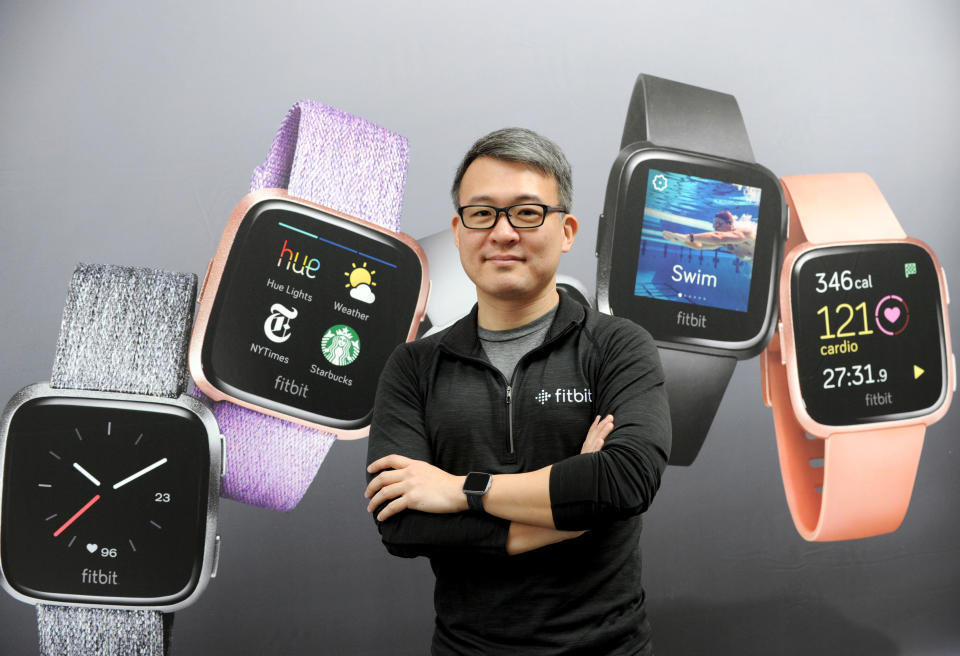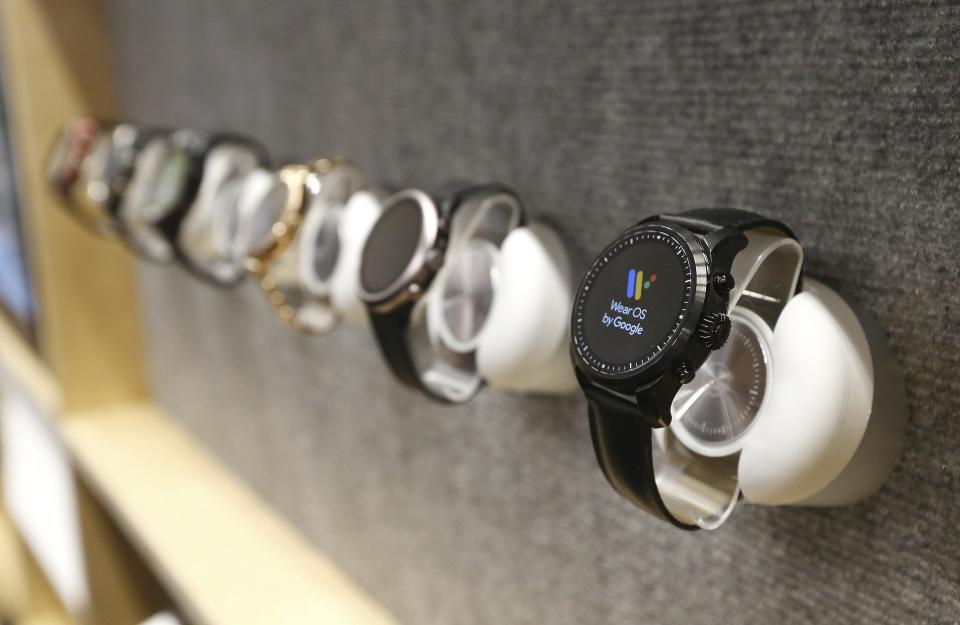Google parent Alphabet to acquire Fitbit for $2.1 billion
Google's parent company Alphabet (GOOG, GOOGL) is acquiring health tracking company Fitbit (FIT) for $2.1 billion. The deal will pay out $7.35 per Fitbit share, which was priced at $6.16 in pre-market trading Friday. The news follows an earlier report that the two firms were set for a tie up.

Fitbit was up 16% in pre-market trading on the news. Alphabet was up 0.3%.
The move gives Alphabet, which has struggled to gain traction in the growing wearables market, a much needed leg up. Fitbit would, naturally, benefit from the additional resources at Alphabet's disposal.
“Over the years, Google has made progress with partners in this space with Wear OS and Google Fit, but we see an opportunity to invest even more in Wear OS as well as introduce Made by Google wearable devices into the market,” said Rick Osterloh, Google’s senior vice president of devices and services.
“Fitbit has been a true pioneer in the industry and has created engaging products, experiences and a vibrant community of users. By working closely with Fitbit’s team of experts, and bringing together the best AI, software and hardware, we can help spur innovation in wearables and build products to benefit even more people around the world,” he added.
Google lags in wearables
Google was one of the first big-name players to jump into the smartwatch space with its Android Wear operating system. The company has since rebranded its wearable operating system to WearOS, but its market share is negligible at best.
The Fossil Group, which is the company that uses WearOS the most, saw its global share of the smartwatch market fall from 3.2% in Q1 2018 to 2.5% Q1 2019, according to Counterpoint Research. Fitbit, on the other hand, saw its share rise from 3.7% in Q1 2018 to 5.5% in Q1 2019.
Canalys, meanwhile, pegs Fossil Group's share of the North American wearables market at 4.1% as of Q2 2019, while Fitbit topped out at 24.1%. No matter how you slice it, Google is just a bit player in the wearables space.

But Fitbit has had issues of its own, namely Apple. The Apple Watch maker dominates both the domestic and global smartwatch market. And while Fitbit was once able to undercut Apple's pricing, the Cupertino-based company's decision to lower the price of its Apple Watch Series 3 to $199 puts it on the same pricing level as Fitbit's new Versa 2.
For Google, adding Fitbit could be a boon to its fitness tracking efforts.
"Google WearOS and Android Wear has been one of the first smartwatch platforms around, however, its health and fitness components have lagged behind," IDC research director Ramon Llamas said during an interview after news of Google's interest in Fitbit broke earlier this week.
"And despite some updates and injection of talent, the health and fitness part hasn't moved significantly."
Adding Fitbit's fitness tracking and hardware capabilities to Google, however, could reverse the search giant's fortunes in the wearables space.
Fitbit has more than hardware
For most consumers, Fitbit is best known for its fitness trackers and smartwatches, but the company has been steadily pushing into the software market. It has inked deals with insurance providers to help subscribers improve their health, and recently announced a partnership with Bristol-Myers Squibb and Pfizer to develop technologies to detect atrial fibrillation within users.
In August, Fitbit debuted its Fitbit Premium subscription service, which provides subscribers with customized fitness and health guides based on their goals. Available for $9.99 per month or $79.99 for a full year, Fitbit Premium is being positioned. as a key differentiator for the company compared to Apple, which doesn't offer such a custom service.
Google, on the other hand, may be able to leverage Fitbit's efforts to build on its own health initiatives including its Google Fit service.
More from Dan:
Apple TV+ is now live — Here's how it compares to Disney+, HBO Max, Netflix, and others
Apple set to report Q4 earnings as iPhone 11 sales hopes build
Got a tip? Email Daniel Howley at dhowley@yahoofinance.com, and follow him on Twitter at @DanielHowley.
Follow Yahoo Finance on Twitter, Facebook, Instagram, Flipboard, SmartNews, LinkedIn,YouTube, and reddit.

 Yahoo Finance
Yahoo Finance 
